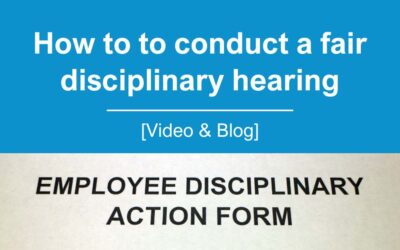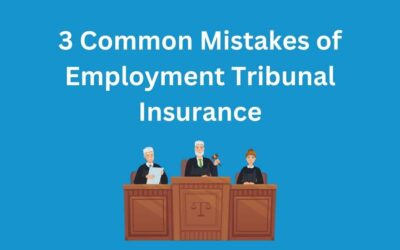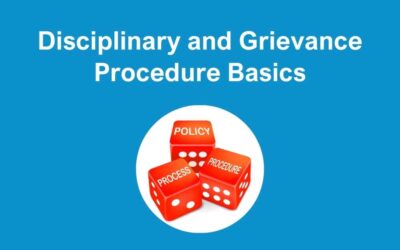‘What is the role of trade union representative at disciplinary hearing?’ This is one of the most popular questions we get asked about.
It’s important you fully understand the role of a union rep before you start the disciplinary process. We have created this article to help you do just that.
What is a Trade Union Representative
A trade union representative is an employee elected or appointed by a trade union to represent and support colleagues in the workplace. Their involvement in disciplinary investigations is protected by law, and they have a clear, recognised role to play.
In larger organisations, often, the representative at disciplinary hearing will be a workplace representative who is also a co-worker. In the cases of SMEs, where in most cases there is no union representation, the rep will be an official outside of the company.
A trade union ‘official’ has a particular meaning and must either be an ‘officer’ of a trade union. I can also be someone who has been properly elected or appointed to be a representative of its members. You can ask for written confirmation of this from the trade union concerned. This is normally done at the introduction stage of the meeting.
The Right to Be Accompanied
Under the Employment Relations Act 1999, employees have the statutory right to be accompanied at a disciplinary hearing. This can either be by a colleague, a trade union representative, or an official employed by a trade union.
Roles and Responsibilities of Union Representative
Here are some potential roles and responsibilities of a union rep at a disciplinary hearing:
Support the Employee
Their main role is to provide support, helping the employee understand the process. It’s also to ensure they have a fair opportunity to respond to any concerns.
Attending meetings
The Trade Union Representative can also attend disciplinary meetings with the employee to provide support and take notes. In some cases, the representative may be allowed to speak on behalf of the employee.
Furthermore, they can present and/or sum up your employee’s and say things to support their case. They can confer during the hearing but cannot answer questions on their behalf. They are normally very balanced and objective.
Providing you follow our guidance in relation to the meeting, there is nothing to be concerned about.
Act as a Witness
A Trade Union Representative may act as witnesses to how the investigation is conducted, ensuring procedures are followed correctly and fairly.
Can a trade union rep speak in a disciplinary?
Yes, under UK law, a trade union representative is allowed to speak on behalf of an employee in a disciplinary hearing. This right is provided by the Employment Relations Act 1999. The representative can present the employee’s case, sum up the case, and respond on the employee’s behalf to any views expressed at the meeting. However, the representative cannot answer questions directed at the employee.
It’s important to note that while the trade union representative can speak, they do not have the right to prevent the employer from explaining their case or to stop the hearing from proceeding. The representative’s role is to support the employee, ensuring that the employee’s case is fairly presented.
Reviewing Evidence
They can review any evidence presented by the employer and provide feedback to the employee on how to respond.
Challenging the employer’s case
The person representing can also challenge the employer’s case if they believe there are inaccuracies or inconsistencies. Furthermore, they can ask questions and seek clarification from the employer’s representatives.
Negotiating a settlement
If the employer and employee are able to reach a settlement agreement, the Trade Union Representative can assist with negotiating the terms of the agreement.
Best Practice for Employers
-
Allow the Representative to Attend Investigation Meetings
While not a legal requirement, allowing attendance at the investigation stage helps to build trust. It can also reduce the risk of future claims. -
Communicate Clearly
Let both the employee and their representative know what the meeting will involve and what role the representative can play. -
Be Flexible
If a representative is unavailable at the scheduled time, you can offer a reasonable postponement of up to five working days. -
Remain Impartial
Treat the presence of a trade union representative as a positive part of a fair process, not as an inconvenience.
Do you need help with a disciplinary hearing?
Understanding the role of a trade union representative at disciplinary hearing is crucial. However, it’s also important to know how to conduct the disciplinary process correctly.
Disciplinary hearings are a necessary and important process for any business to address issues of misconduct, performance, or other violations of company policy. However, conducting disciplinary hearings can be a challenging and time-consuming task for businesses.
Our HR consultants can provide valuable support to businesses by offering guidance and expertise in the disciplinary hearing process. We can help ensure that the process is fair and unbiased. We will also make it a priority that all parties involved are treated with respect and professionalism. Our team assists with preparing the necessary documentation, conducting investigations, and providing guidance on the appropriate disciplinary actions to take.
Our team have decades of combined experience in all things HR and can structure a procedure that makes sense for your business. If you need help with a disciplinary process, feel free to get in touch with our HR Consultants.
Conclusion
The involvement of a trade union representative is an important safeguard for both the employee and the employer. By understanding their role and embracing their presence in disciplinary investigations and hearings, you can strengthen your organisation’s approach to employee relations, demonstrate fairness, and protect against potential legal risks.
If you are unsure about managing disciplinary investigations or require support with any aspect of employee relations, seeking professional HR advice is always recommended.






